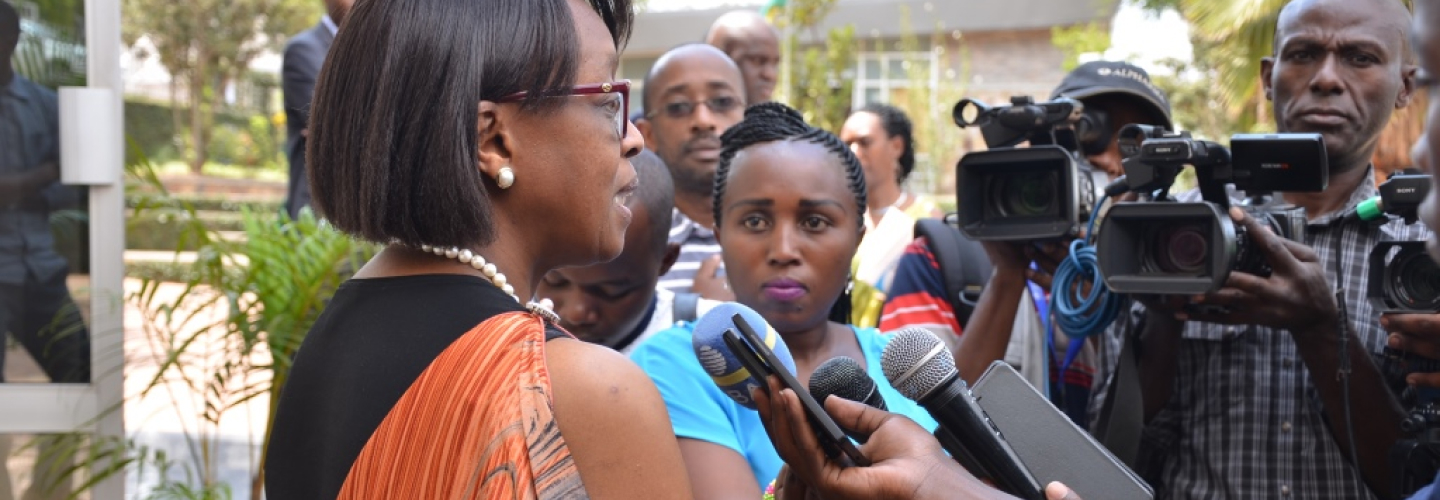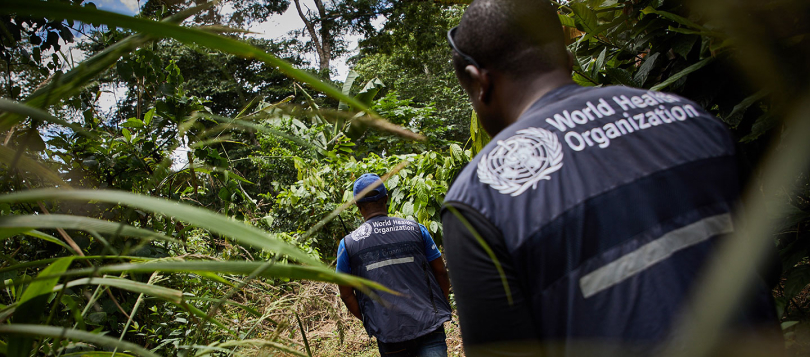

Effective Communications
and Partnerships
Communicate effectively both internally among staff members and externally with stakeholders, build lasting relationships and enhance transparency and trust.

Initiatives
-
New resource mobilization strategy
-
Enhancing collaboration within and across the 3-levels of WHO
-
Harmonization for Health in Africa
-
Broadening engagement with Member States
-
Health beyong the health sector
-
Communication reforms

Outcomes
-
Enhanced internal communication between and across all the three levels of the Organization
-
Reinforced external communications
-
Strengthened strategic partnerships
-
Strategic positioning of WHO in the African Region
With a focus on transforming its approach to partnerships and resource mobilization, WHO AFRO expanded the adoption of the WHO Framework of Engagement with Non-State Actors (FENSA) translating to over 150 non-state actors engaged. The region-wide roll-out of the digital Contributor Engagement Management (CEM) system has provided an added opportunity to access pipeline financing information, leverage different funding sources and investments and diversify WHO funding base contributing to an increase in diversified funding from a broad range of philanthropic and new donors. In 2021, more than 200 staff were trained in the use of the CEM which provides business intelligence and analytics on funding sources.
The increased use of evidence by staff to demonstrate WHO's contribution to Africa's Health has enhanced understanding among Member States of WHO's work in the Region.
By the end of 2020 AFRO had signed 90 partnership agreements, increasing the impact of interventions at country level as well as improving partner synchronization in response to government priorities.

1. Partnerships have been strengthened among the Harmonization for Health in Africa (HHA) member organizations1 through the new framework for better collaboration and greater impact at country level 2022-2023. Further to this, the HHA mechanism undertook a mapping exercise in 39 countries2 to assess effectiveness of partners' coordination and collaboration at country level as well as coordination and harmonization challenges and define workable solutions.
2. These concerted efforts to transform WHO AFRO external relations and resource mobilization have translated in over 30% of the allocated budget for the 2020-2021 biennium for the Region being directly mobilized by AFRO.
3. In the context of the COVID-19 pandemic, WHO AFRO advocated for key issues such as vaccine equity by targeting a range of key influencers with different communications products. The Secretariat promoted healthy COVID-19 practices such as wearing of masks and disseminated over 200 videos with more than 90 of these having one million or more views on the Secretariat's social media platforms (Facebook, Twitter). These platforms grew by 1.129 million followers compared to the annual target of 600,000. Thirty-two newsletters showcasing key elements of the pandemic response were disseminated to ministries of health, United Nations agencies and donors with a unique open rate of nearly 40%, a 10% increase from the previous year.
4. The African Infodemic Response Alliance (AIRA), launched by the WHO Regional Office for Africa in 2020 to coordinate actions and pool resources to combat health misinformation, now has increased in membership from 13 to 15. The corresponding Viral Facts Africa, the AIRA COVID-19 social content hub, has produced and disseminated over 100 different pieces of digital content countering damaging public health misinformation in Africa in multiple languages and which have generated over 95 million views.
- African Development Bank, Japanese International Cooperation Agency, Norwegian Agency for Development Cooperation, UNAIDS, UNFPA, UNICEF, USAID, WHO and World Bank
- Africa Centres for Disease Control and Prevention (Africa CDC), Africa Check, Dubawa, the International Federation of the Red Cross and Red Crescent Societies (IFRC), Meedan, PesaCheck, UNICEF, UNESCO, UN Global Pulse, and the UN Verified initiative, WHO Regional Office for Africa






